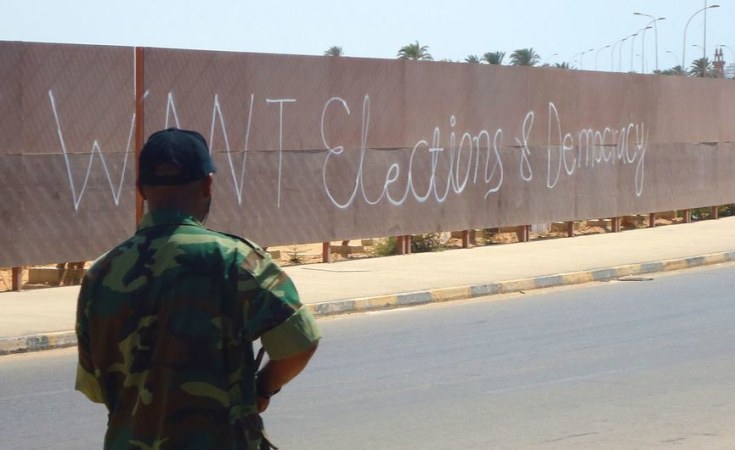Clashes have reportedly erupted in Libya's capital, Tripoli as the parliament-appointed prime minister, Fathi Bashagha, tried to take over the government there. However, he was forced back by a rival administration that has refused to cede power.
Bashagha reportedly entered Tripoli overnight after two months of stalemate between Libya's rival administrations, but withdrew hours later as fighting rocked the capital.
The sound of heavy weapons and automatic gunfire could be heard across Tripoli on Tuesday morning, as schools were cancelled and the normally heavy rush hour traffic was sparse.
Sporadic shooting reportedly continued after Bashagha left, but calmed later in the morning.
The latest crisis risks plunging Libya back into prolonged fighting after two years of comparative peace, or returning it to partition between the eastern-backed government of Bashagha and a Tripoli administration under Abdulhamid al-Dbeibah.
Political deadlock has already led to a partial blockade of Libya's oil facilities, cutting its main source of foreign revenue by half.
Diplomacy to resolve the crisis or lay the ground for new elections is making slow progress.
Latest piece of Libyan political theatre saw rival PM Bashaga spirited into Tripoli in the middle of the night only to be escorted out this morning soon after international news agencies started reporting his arrival.
Libya's economy
In central areas, away from the clashes on the northeast side of Tripoli, there was little evidence of military activity with Dbeibah's government still in apparent control.
With neither side has been able to establish a decisive military advantage across the country, Libya now seems set for a longer period of deadlock.
This may prolong the shutdown of major oil facilities by forces in eastern Libya tied to commander Khalifa Haftar - who backs Bashagha - or to clashes escalating beyond the capital.
Political solution at an impasse
Libya has had little security since the 2011 NATO-backed uprising that ousted Moamer Kadhafi and it split in 2014 between rival eastern and western factions before a 2020 truce that brought it under Dbeibah's fragile unity government.
A plan to hold elections in December collapsed amid arguments among major factions and prominent candidates over the rules and the parliament, which had sided with the east during the war, moved to appoint a new administration.
The unity government's prime minister, Dbeibah, rejected the parliament's moves saying his administration was still valid and he would only hand over power after an election.
Diplomacy has focused on talks between the parliament and a Tripoli-based legislative body to lay the ground for another attempt to settle Libya's conflict by holding an election.


